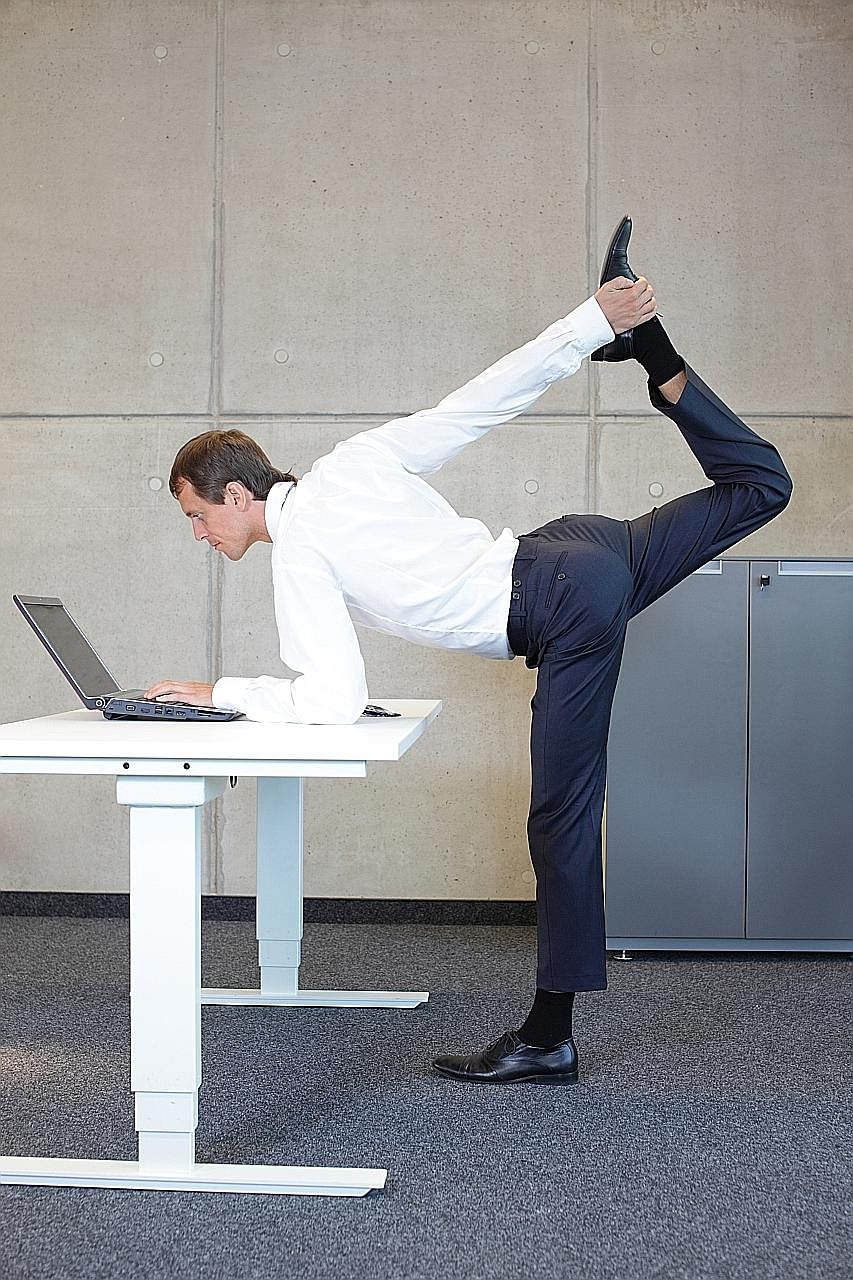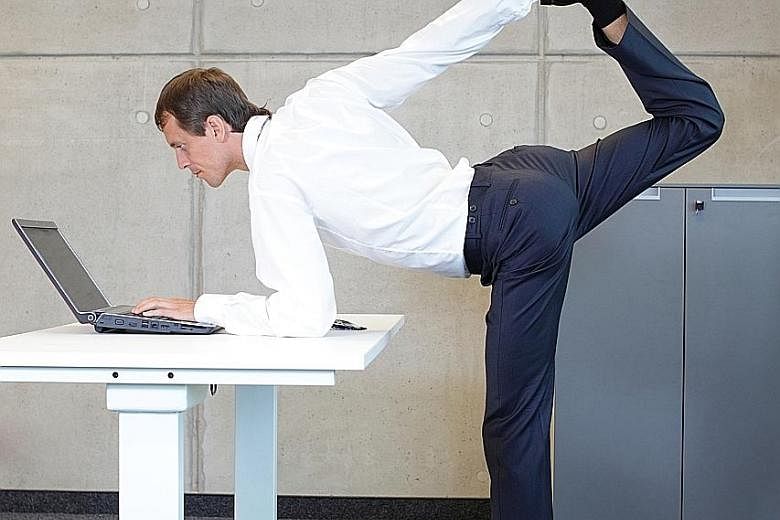Moving your body at least every half an hour could help to limit the harmful effects of desk jobs and other sedentary lifestyles, research has revealed.
The study found that more time spent inactive in a day and longer periods of inactivity were linked to an increased risk of death.
"If you sit at work all day and you also sit at home a lot, then you should be really mindful of trying to take a break from your sitting habits as often as possible - at least every 30 minutes," said Dr Keith Diaz, co-author of the study from Columbia University Medical Centre.
"Even if you exercise, you should still be mindful of taking breaks and be moving throughout the day because exercise is not enough to overcome the risks of sitting, and sitting in long bouts."
Writing in the journal, The Annals Of Internal Medicine, Dr Diaz and researchers from seven American institutions described how they kitted out nearly 8,000 people aged 45 and over with activity trackers between 2009 and 2013.
Each participant wore the fitness tracker for at least four days in a week. The deaths of participants were tracked until September 2015.

The results revealed that, on average, participants were inactive for 12.3 hours of a 16-hour waking day, with each period of inactivity lasting an average of 11.4 minutes.
After taking into account a host of factors including age, sex, education, smoking and high blood pressure, the team found that both the overall length of daily inactivity and the length of each bout of sedentary behaviour were linked to changes in the risk of death from any cause.
Participants who were inactive for 13.2 hours a day had a risk of death 2.6 times that of those spending less than 11.5 hours a day inactive. Those whose bouts of inactivity lasted an average of 12.4 minutes or more had a risk of death almost twice that of those who were inactive for an average of less than 7.7 minutes at a time.
The team looked at the interaction between the two measures of inactivity, finding the risk of death was greater for those who had both high overall levels of inactivity (12.5 hours a day or more) and long average bouts of sedentary behaviour (10 minutes or more), than for those who had high levels of just one of the measures.
"We were trying to understand what is the worse feature of a person's sitting habits - is it how many hours a day you sit or is it sitting in long bouts," said Dr Diaz. "Unfortunately, the message is more mixed… it looks like both are bad for you."
Further analysis found that those who kept most of their bouts to under 30 minutes at a time had the lowest risk of death. The longer, more frequent and more intense the breaks from inactivity, the better.
The latest study is not the first to probe the impact of prolonged periods of inactivity, but the team said the use of activity trackers is a step up as it does not rely on self- reporting, which is less accurate.
Being more active does not require huge efforts, said Dr Mike Loosemore from the Institute of Sport, Exercise and Health, who was not involved in the research.
"You can stand up to answer the phone and, instead of getting a full glass of water from the kitchen, get half a glass and then go twice as often," he said.
THE GUARDIAN

